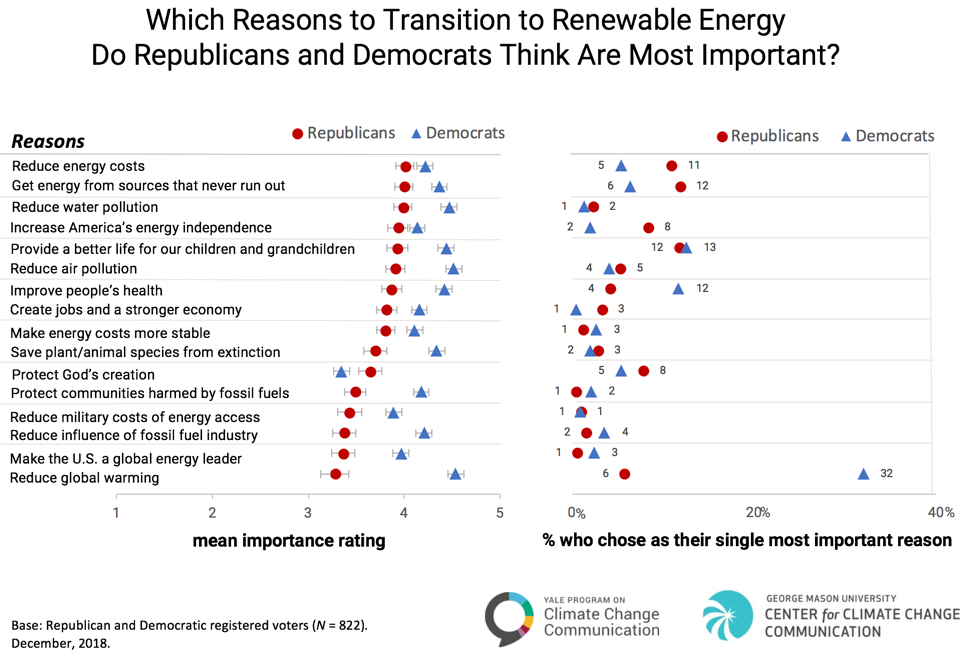Peer-Reviewed Article · Apr 10, 2020
Republicans and Democrats Differ In Their Primary Reasons For Supporting Renewable Energy
By Abel Gustafson, Matthew Goldberg, John Kotcher, Seth Rosenthal, Edward Maibach, Matthew Ballew and Anthony Leiserowitz
Filed under: Policy & Politics

We are pleased to announce the publication of a new research article, “Republicans and Democrats Differ in Why They Support Renewable Energy” in the journal Energy Policy.
Many Americans support the greater use of renewable energy. Prior research has found that public support is motivated primarily by the perception that renewable energy reduces environmental harms (e.g., global warming, pollution) and creates economic benefits (e.g., cost savings, more jobs). However, different people are motivated to support renewable energy for different reasons.
This study finds that Democrats, more than Republicans, support renewable energy as a solution for global warming. In contrast, Republicans, more than Democrats, support renewable energy for economic reasons.
These findings are based on a nationally representative survey of 822 American registered voters. Survey participants were shown 16 potential reasons to transition to renewable energy and asked how personally important they found each one. Then, in a follow-up question, respondents chose the single reason they found most important. Among Democrats, “reduce global warming” was the most important reason for transitioning to renewable energy, while among Republicans, it was the least important reason. Instead, Republicans selected “reduce energy costs” as one of their most important reasons and were more likely than Democrats to choose it as their single most important reason, along with “get energy from sources that never run out” and “increase America’s energy independence”.
We also investigated another related question: what are the best predictors of support for a transition to 100% renewable energy, and are they different for Democrats versus Republicans? The belief that renewable energy will improve the economy was a significantly stronger predictor of renewable energy policy support among Republicans than among Democrats. In contrast, interest in solutions to global warming was a strong and significant predictor of renewable energy policy support among Democrats, but not among Republicans.
However, these findings do not imply that Republicans only care about economics when considering renewable energy. Likewise, it is not the case that Democrats only care about global warming. Rather, our findings indicate a pattern of relative importance – economic considerations play a relatively more important role among Republicans than among Democrats, and global warming concerns play a relatively more important role among Democrats than among Republicans.
These findings have important implications for communicators, policymakers, and activists. Emphasizing particular benefits of renewable energy that match the motivations and priorities of specific audiences may help to increase public support for renewable energy policy, as well as consumer demand for local development of renewable energy.
The full article is available here to those with a subscription to Energy Policy. If you would like to request a copy, please send an email to climatechange@yale.edu with the subject line: Request Renewable Energy Partisan Differences paper.
